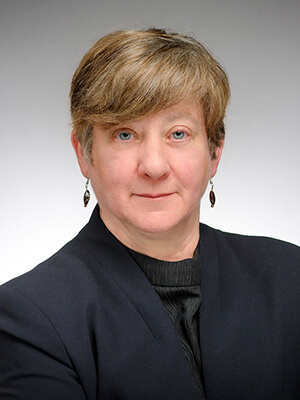 Kellogg faculty fellow Karen Graubart, a professor in the Department of History, has been awarded a fellowship from the John Simon Guggenheim Memorial Foundation as part of its 100th class of honorees. She is one of two faculty at the University of Notre Dame and one of 198 scholars, scientists, and artists chosen based on their prior career achievement and exceptional promise.
Kellogg faculty fellow Karen Graubart, a professor in the Department of History, has been awarded a fellowship from the John Simon Guggenheim Memorial Foundation as part of its 100th class of honorees. She is one of two faculty at the University of Notre Dame and one of 198 scholars, scientists, and artists chosen based on their prior career achievement and exceptional promise.
The Guggenheim Foundation has granted more than $400 million in fellowships to more than 19,000 people over the past century, including members of national academies, Pulitzer Prize winners, and more than 125 Nobel laureates.
In her project “Making Malambo: Free Black Collectivity in Early Spanish America,” Graubart will examine how a free African-descent community in colonial Panama represented itself in conversation with Spanish officials.
In the late 16th century, Spanish King Philip II imposed a new tax on all free Black people and people with mixed African heritage within the empire. In response, the targeted community in Panama organized a collective petition detailing their challenges and accomplishments.
“My work provides ways to think about not only what kind of work they did, and how they were overlooked by so many, but also what kind of influence they were able to exercise over these proceedings,” Graubart said.
Graubart – who is also a member of the Institute for Advanced Study, and whose work has been previously supported by the NEH and the American Council of Learned Societies – will travel during her fellowship year to both Peru and Panama to scour archives that may be relevant to her research.
She is particularly interested in Catholic archives, as she recently received the Cyprian Davis, OSB, Prize from the Cushwa Center for the Study of American Catholicism, in partnership with the American Catholic Historical Association, to research Black Catholicism.
“The Catholic Church provided semi-autonomous spaces for enslaved and free people to organize for worship and festivals, including in Panama,” she said. “So I will be thinking about how Catholicism might have shaped their collectivity.”
Graubart's colleague Thomas Burman, the Robert M. Conway Director of the Medieval Institute and a professor of history, is the second Notre Dame recipient this year of the Guggenheim fellowship.
“We are thrilled to see two of our scholars receive this prestigious recognition from the Guggenheim Foundation,” said Ernest Morrell, associate dean for the humanities and equity and the Coyle Professor of Literacy Education. “This support for their work is testament to their groundbreaking scholarship and insightful analysis, and it underscores the strength and caliber of the research done throughout our history department.”
With the addition of Burman and Graubart, 24 Arts & Letters faculty members have won Guggenheims in the last 25 years.
In 2024, Notre Dame awardees included Kellogg faculty fellow, Roy Scranton, associate professor of English.
“Our faculty continue to demonstrate a broad and urgent commitment to the public good of scholarship in the liberal arts,” said Kate Marshall, director of the Franco Institute and associate dean for research and strategic initiatives. “Thomas and Karen are the two latest examples of critical work done throughout the College to expand our understanding of the past in a way that vitally informs our present.”
This article is excerpted from the original published by al.nd.edu.





